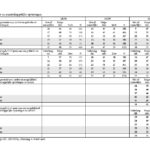Greece Just Became The First European Country To Impose A 6-Day Workweek
No Comments yet
C.J. Polychroniou
07-02-204 ~ Years of brutal neoliberal capitalism combined with the left’s betrayal have led to widespread political demoralization.
Just when one thought that the neoliberal dystopia created in Greece since the eruption of its debt crisis could not get any darker, the current right-wing government of Prime Minister Kyriakos Mitsotakis has replaced the nation’s five-day workweek with a six-day workweek and flexible working hours. The controversial new law kicks into effect July 1, as Greeks have accepted it with little resistance.
The six-day workweek applies to both the public and the private sector. Specifically, the new labor law affects businesses, organizations and continuously operating enterprises that currently use the five-day workweek model and enables employers to compel their employees to work six days a week. The additional working day will be paid with an additional 40 percent of the daily wage.
As a poster child of neoliberal transformation, Greece is the first country in Europe to introduce the six-day workweek, and it comes at a time when other European countries have already adopted or tested, with overwhelmingly positive results, a four-day workweek system.
What is even more ironic about the new labor law is that Greeks already work the longest hours in Europe (while earning lower wages than at the beginning of the country’s financial crisis), while labor productivity, defined as real gross domestic product per hour worked, is approximately 61 percent of the European Union average and 55 percent of the eurozone average. In fact, according to the Organisation for Economic Co-operation and Development (OECD) Economic Outlook, labor productivity has actually fallen in recent years, revealing the moribund state of the existing economic model in Greece.
The new labor law, which was approved last September by a Parliament dominated by conservatives, was allegedly designed with the intent of putting an end to skilled labor shortages. This is complete gibberish, as virtually all of Europe seems to be facing skilled labor shortages. Roughly 75 percent of employers in 21 European countries reported having difficulty finding workers equipped with the right skills in 2023, while 82 percent of German employers reported experiencing problems with finding qualified candidates for open positions in 2024. Yet, only Greece’s right-wingers seem to think that making a transition from a five-day workweek to a six-day workweek is the way to address skilled labor shortages. Moreover, they are aloof from the anxieties of citizens everywhere who demand better work-life balance, as well as oblivious to the empirical evidence available that a shortened workweek results in increased employee productivity and company performance.
The change is motivated by a deep-seated desire on the part of neoliberals and the domestic capitalist elite to further degrade the position of workers and to maximize labor exploitation. True enough, international creditors (the so-called troika of the European Commission, the European Central Bank and the International Monetary Fund) had recommended back at the height of the debt crisis that Greece should adopt a six-day workweek, but the new labor law is the work of former Minister of Labor and current Minister of Health Adonis Georgiadis, whose long and rich history of antisemitism and political involvement in far right politics is well documented. Georgiadis, who also serves as vice president of the right-wing New Democracy party, has in fact gone on record saying that it is the “right” of workers to work 16 hours a day.
In practice, the new labor law may very well realize this ultra-reactionary vision for the future of workers and work in Greece. It allows workers to work eight hours a day in two different business establishments and includes a series of highly flexible employer-employee arrangements such as allowing the former to offer new workers a six-month probationary period and release them without compensation during the first year. Employers can also call an employee into work on their day off with just a 24-hour notice.
In a different era, such reactionary labor measures would have at least encountered massive waves of public anger and protests. Konstantinos Mitsotakis, the father of the current Greek prime minister and a Thatcherite, managed to stay in power for only three short years (1990-1993) on account of the large-scale opposition by trade unions, socialists and communists to his ambitious plan for structural reforms of the Greek economy based on deregulation policies, market liberalization and wild privatization schemes of all public sector enterprises and all social services. Even members of his own New Democracy party opposed his radical privatization schemes.
Unfortunately, today the social reordering in Greece is so deep and profound that public pain for private gain has become the new norm as many years of brutal neoliberal capitalism combined with the left’s betrayal have resulted in a condition of political demoralization among the citizenry that makes it difficult to see how the country can wriggle out of its ongoing neoliberal nightmare.
Greece may be the first country in Europe to institute a six-day workweek, but employees in many companies in China already work six days a week and a number of companies in the U.S. also plan to mandate a six-day workweek in 2025. Undoubtedly, the erosion of labor rights and increased labor exploitation are easier to realize in conditions where trade unions have been weakened and the anti-capitalist left is feeble or nonexistent, for they are both essential to effectively challenge the irrational and inhumane project of neoliberal capitalism.
The Path From Debt Crisis to Neoliberal Dystopia
During the course of the infamous bailouts that took place between 2010 and 2015 following the outbreak of the Greek debt crisis in late 2009, the small southeastern European country was converted by the troika into a neoliberal laboratory.
Leaning on the myth of Greek profligacy, the troika pushed a ruthless neoliberal policy agenda that comprised massive budget cuts in health care and education; major wage adjustments, with wages in the private sector falling even faster and lower (by over 23 percent) than in the public sector; pension reforms (pensions paying over 2,000 euros per month were cut by more than 40 percent, while pension paying less than 1,000 euros per month were cut by 14 percent); sharp cuts in social protection systems; massive tax increases; privatization of all state assets in the form of a fire sale; and draconian labor reforms that essentially demolished the whole system of collective bargaining and turned the labor market into a jungle.
The country’s main political parties (the social democratic PASOK, the conservative party of New Democracy, and the Coalition of the Radical Left, aka, Syriza) all took turns at governing during the debt crisis and all three of them ended up signing bailout agreements and, subsequently, consenting to the transformation of Greece into a neoliberal dystopia.
Shockingly enough, but hardly surprising, very little of substance has changed in Greece since the bailouts. The economy functions on the same deficient model, with tourism and low wages acting as main drivers of growth. The state (including the judicial system) suffers from the same old pathologies of corruption and inefficiency (though the use of new technologies in administrative affairs serves to create the illusion that a new era has dawned in state-citizen relations). Meanwhile, the shadow economy continues to thrive, amounting to about one-fifth of GDP; the average monthly wage is 20 percent lower than 15 years ago, unemployment is still over 10 percent, and the second-highest in the EU; and the debt-to-GDP ratio is much higher now than it was during the pre-crisis era. Indeed, all the bailout agreements managed to do vis-à-vis the allegedly unsustainable debt-to-GDP ratio at the end of 2009 was increase it. In 2009, the ratio of public debt to GDP stood at 115.1 percent. At the end of the fourth quarter of 2023, it was at 161.9 percent — though it is expected to start declining from 2024 to 2029 and Greece is now repaying earlier loans from the first bailout.
The sadistic neoliberal measures introduced by the troika and obediently implemented in turn by the country’s three main political parties have left Greece unable to pursue an alternative economic model. Consequently, socio-economic inequalities widened, democracy suffered severe blows, and the citizenry seems to have given up all hope for meaningful social change after Syriza’s rise to power ended in a total fiasco. As evidenced by the record-low voter turnout in last month’s European Parliament elections, Greeks today appear to feel helpless in the face of the crude realization that the country’s political establishment unequivocally places the interests of the euromasters and the domestic corporate and financial elite above those of working people.
Copyright © Truthout. May not be reprinted without permission.
C.J. Polychroniou is a political scientist/political economist, author, and journalist who has taught and worked in numerous universities and research centers in Europe and the United States. Currently, his main research interests are in U.S. politics and the political economy of the United States, European economic integration, globalization, climate change and environmental economics, and the deconstruction of neoliberalism’s politico-economic project. He is a regular contributor to Truthout as well as a member of Truthout’s Public Intellectual Project. He has published scores of books and over 1,000 articles which have appeared in a variety of journals, magazines, newspapers and popular news websites. Many of his publications have been translated into a multitude of different languages, including Arabic, Chinese, Croatian, Dutch, French, German, Greek, Italian, Japanese, Portuguese, Russian, Spanish and Turkish. His latest books are Optimism Over Despair: Noam Chomsky On Capitalism, Empire, and Social Change (2017); Climate Crisis and the Global Green New Deal: The Political Economy of Saving the Planet (with Noam Chomsky and Robert Pollin as primary authors, 2020); The Precipice: Neoliberalism, the Pandemic, and the Urgent Need for Radical Change (an anthology of interviews with Noam Chomsky, 2021); and Economics and the Left: Interviews with Progressive Economists (2021).
You May Also Like
Comments
Leave a Reply







